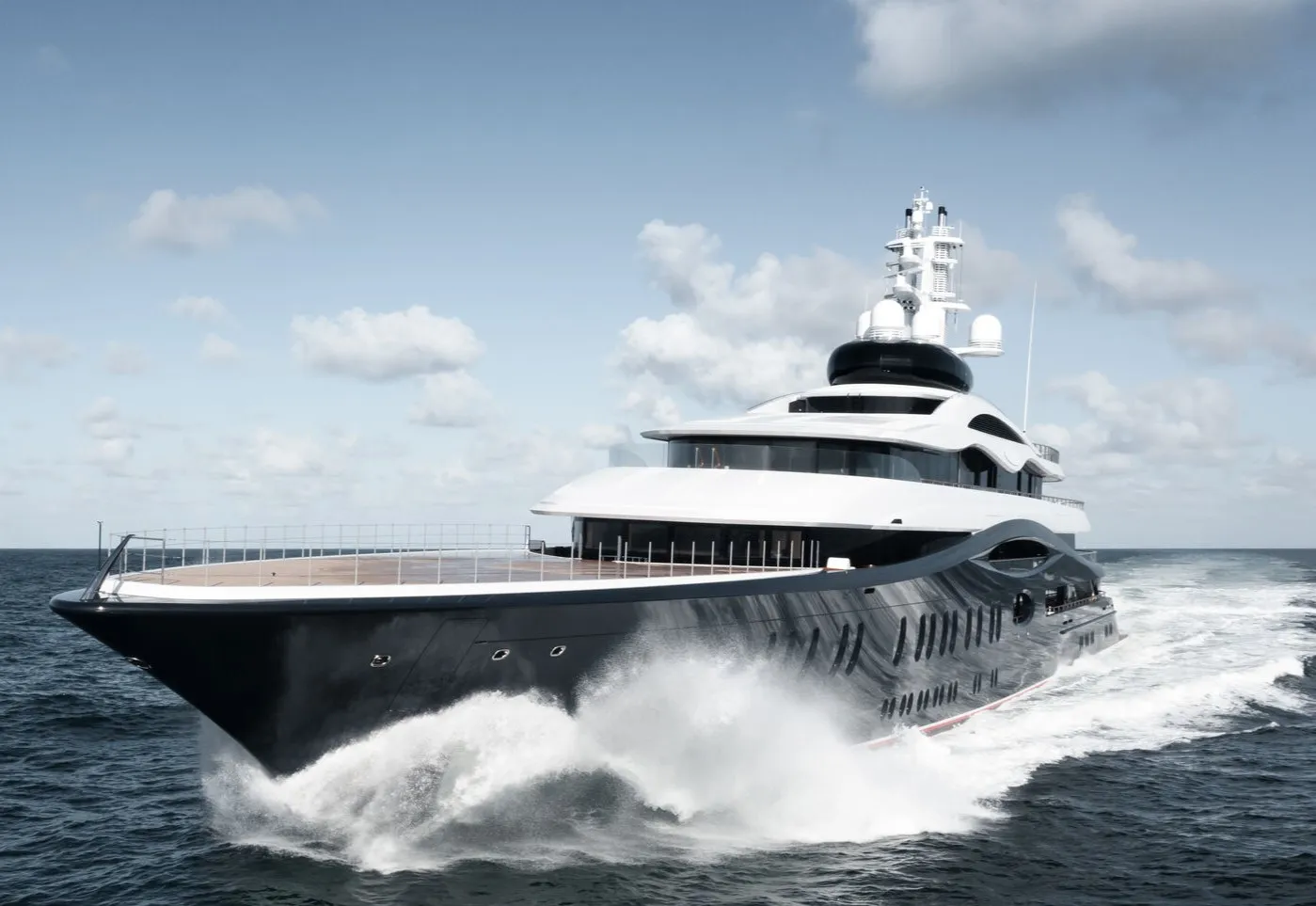

No Longer Just Luxury: Mark Zuckerberg Treats His Yacht Like an “Everyday Car”
For decades, luxury yachts have symbolized exclusivity, leisure, and the pinnacle of wealth. They are often seen as floating palaces reserved for the ultra-rich, rarely used and usually docked until special occasions. Yet in the case of Mark Zuckerberg, co-founder and CEO of Meta, the narrative is shifting. Reports have emerged that Zuckerberg has begun using his superyacht not merely as a status symbol but as a kind of everyday vehicle, casually cruising with family and friends much the way an average person might use a car. Fans and critics alike are stunned by this transformation of luxury into practicality, sparking debates about what it means for billionaires to normalize extreme wealth in daily life.
The Story of Zuckerberg’s Yacht
Mark Zuckerberg’s yacht is no ordinary vessel. Valued at several hundred million dollars, it boasts state-of-the-art technology, luxurious interiors, and the capacity to host dozens of guests. Industry insiders describe it as a blend of power, privacy, and prestige, outfitted with everything from a helipad to entertainment systems and private suites. For many, such a yacht would be a rare indulgence, used sparingly for vacations or high-profile gatherings.
But Zuckerberg has redefined its purpose. Instead of treating it as a showpiece, he reportedly takes it out frequently, using it as casually as others use their personal cars. This everyday approach challenges the traditional perception of yachts as once-in-a-while luxuries, raising eyebrows and inspiring conversations across the internet.
Fans React: Admiration or Outrage?
The revelation that Zuckerberg treats his yacht like an “everyday car” has divided fans into two camps.
Supporters argue that the billionaire is entitled to use his assets however he pleases. To them, his casual approach to the yacht is refreshing, a sign that he views it not as a tool for flaunting wealth but as a practical extension of his lifestyle. Admirers suggest that he’s simply maximizing the utility of something he owns, the same way ordinary people make full use of their cars.
Critics, however, view the situation differently. Many see it as tone-deaf extravagance, pointing out that operating a yacht for everyday use consumes enormous amounts of fuel, requires large crews, and comes with ecological costs. At a time when climate change and wealth inequality dominate headlines, Zuckerberg’s nautical lifestyle feels, to detractors, like a glaring display of excess.

The Symbolism of Turning Luxury Into Routine
What makes Zuckerberg’s case particularly fascinating is the symbolism of converting a luxury into something routine. A yacht, in cultural terms, is supposed to represent distance: a separation from the masses, a rarefied realm of power and indulgence. By using it casually, Zuckerberg erases that distance—not by bringing himself closer to ordinary life, but by normalizing the extraordinary.
To some fans, this normalization is aspirational. It suggests a future where technology moguls see no distinction between luxury and utility, where innovation and wealth allow for seamless comfort. To others, it represents a troubling shift, where billionaires treat what most people consider unimaginable extravagance as mundane, further widening the emotional and social gap between elites and everyday families.
How It Reflects Zuckerberg’s Personality
Observers often note that Mark Zuckerberg’s lifestyle choices oscillate between simplicity and extravagance. On the one hand, he has been photographed in plain T-shirts and hoodies, famously adopting a minimalist wardrobe to focus on efficiency. On the other hand, he makes staggering financial moves, such as spending $110 million on real estate or investing billions into the metaverse.
The way he uses his yacht reflects this duality. To him, the yacht is not necessarily about glamour; it’s about practicality, privacy, and family time. He treats it as a tool rather than a trophy. Fans who admire this approach argue that it shows Zuckerberg is less interested in showing off and more interested in living life on his terms. Yet critics counter that no matter how casually he frames it, using a superyacht like a car remains a privilege of staggering wealth.
A Family-Oriented Use of Luxury
Part of the narrative that softens the critique is Zuckerberg’s role as a father. Insiders report that he often uses the yacht to take his wife and daughters on private getaways. The vessel provides a controlled environment where his children can enjoy the outdoors without the risks associated with public exposure. For a family as high-profile as the Zuckerbergs, this sense of safety and privacy is invaluable.
Fans sympathetic to his parenting choices argue that, as a father, Zuckerberg is doing exactly what any parent would—leveraging his resources to give his children freedom and security. The yacht, in this context, becomes less a symbol of excess and more a floating safe haven.
Environmental Concerns
Of course, no discussion of yachts can avoid the environmental debate. Superyachts are notorious for their carbon footprints, often emitting thousands of tons of CO₂ annually. The idea that Zuckerberg might use his yacht as an “everyday car” raises pressing questions about sustainability and responsibility.
Critics emphasize that while Zuckerberg has invested billions into futuristic technologies like AI and virtual reality, his personal lifestyle choices contradict the environmental stewardship many expect from world leaders. Using a yacht casually, they argue, sends a dangerous message about ignoring ecological consequences in favor of personal comfort.
The Larger Context: Billionaires and Mobility
Zuckerberg’s yacht habits fit into a broader trend among billionaires redefining mobility. Elon Musk, for instance, often speaks of space travel as the future of human transportation. Jeff Bezos envisions colonies in orbit. Others invest in private jets, luxury submarines, or fleets of exotic cars.
Zuckerberg’s approach, however, stands out because it repositions an existing luxury—already symbolic of elite exclusivity—into the realm of daily routine. This makes the wealth gap feel even more pronounced, as fans see billionaires not just owning incredible assets but using them in ways that ordinary people cannot imagine.

Cultural Fascination With Billionaire Lifestyles
Part of the reason stories like this capture so much attention is because they reveal the blurred line between relatability and alienation. Zuckerberg, who built a company on connecting people, now embodies the paradox of disconnection: his wealth allows him to live a life so different that even his version of “normal” feels alien to most.
Fans who admire him frame this as aspirational, a dream of what technology and success can bring. Critics, however, see it as proof that billionaires are carving out lives that no longer intersect with the realities of the majority.
The Debate That Won’t End
As with many aspects of Mark Zuckerberg’s life, the story of his yacht-as-car has sparked a broader debate. Is he a visionary father making practical use of his wealth, or is he an out-of-touch billionaire flaunting resources while others struggle with affordability and climate concerns?
The truth likely lies somewhere in between. Zuckerberg’s casual use of his yacht reflects his unique position: one where privacy, safety, and convenience are paramount, and money is no object. Whether fans see this as inspiring or infuriating depends on how they interpret the symbolism of turning luxury into routine.
Conclusion: Redefining What’s Normal
The image of Mark Zuckerberg treating his yacht like an everyday car is more than just a quirky headline. It encapsulates the tension between extreme wealth and everyday life, between love of family and criticism of excess. It also forces us to consider how billionaires redefine what “normal” means, often in ways that challenge cultural values and provoke emotional reactions.
For now, Zuckerberg seems unconcerned by the debates. He continues to enjoy his floating palace with his family, proving once again that for the ultra-rich, luxury is not about rarity—it’s about routine. And as long as stories like this circulate, fans will continue to wrestle with admiration, envy, and critique, debating what it really means when the extraordinary becomes ordinary.


















